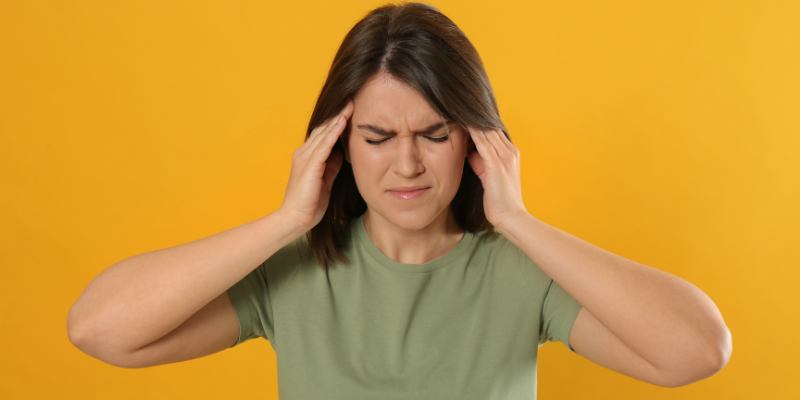Have you ever found that your voice sounds different as you age? Many people age and experience changes in vocal tone, pitch, and depth; it can be perplexing to know why. These alterations are usually connected to normal aging processes that influence the vocal chord, vocal box, and surrounding structures.
This article will explore the logic behind why voices change with age, what influences these changes, and if everyone gets a deeper voice as they age. Let's explore your expected voice as the years go by.

The Science Behind Voice Changes with Age
Changes in the body as we age impact our voice quality. The larynx, or voice box, vibrates the vocal cords to generate voice. The muscles and tissues engaged in this process change with time, which affects their performance. As we age, collagen, elastin, and other essential proteins in our voice cords decrease, therefore compromising their strength and flexibility. These proteins maintain our vocal cords' flexibility and enable their correct vibration.
A deeper, occasionally weaker voice results from the reduction in vocal cord thickness or loss of flexibility brought on by it. Voice alterations also include hormones in some capacity. Menopause might cause women to have pitch shifts when estrogen levels decrease, and vocal cords may thicken. The aging voice often sounds more breathy, somewhat lower, and slower overall.
Do Men and Women Experience Voice Changes Differently?
Indeed, as people age, men and women have different vocal changes. Conversely, especially following menopause, women's voices could get deeper and more hoarse. The drop in estrogen alters the vocal cords, so changing the voice pitch and quality.
Older women are particularly more likely to have vocal fry or harshness. Men, on the other hand, are more likely to have a minor pitch rise from loss of muscle mass surrounding the vocal cord. Especially in high frequencies, both genders naturally lose vocal strength and control, which makes it more difficult to keep tone consistency or volume.
Environmental and Lifestyle Factors That Affect Voice with Age
Although age is a big determinant, our voices vary with time, in great part due to our surroundings and way of life. For instance, smoking is well documented to profoundly affect voice. The smoke dries out the vocal cords, aggravating chronic inflammation and deepening and roughing the voice. Extended smoking might potentially cause permanent changes in voice quality and raise the risk of throat-related disorders, therefore influencing vocal tone.
Another important factor is dehydration. Vocal cord health depends on being hydrated since moisture keeps them flexible. Chronic dehydration may stiffen the vocal cords, impairing smooth voice production. Furthermore, air pollution and allergy exposure can aggravate the throat and influence voice quality, resulting in a persistent raspy or deeper tone.
Medical Conditions that Impact Voice Depth and Quality
Medical disorders impacting the respiratory or vocal systems can also damage aging voices. A hoarse or raspy voice can result from disorders including acid reflux, sometimes known as Gastesophageal Reflux Disease (GERD). The acid from the stomach can aggravate the throat and vocal cords, causing them to swell or thicken and so affect the voice. This chronic inflammation might cause more constant voice alterations with time.
Furthermore, neurological disorders, including multiple sclerosis and Parkinson's disease, can affect voice quality. These disorders can weaken or stiffen the vocal cords, producing a softer or deeper voice. Furthermore, thyroid disorders, especially in older persons, could affect vocal pitch and depth. Either hyperactive or underactive thyroid glands can cause changes in the hormones influencing vocal tone and strength. Understanding these disorders is crucial since they can greatly affect the normal changes your voice experiences as you age.

When Should You Seek Help for Voice Changes?
Although aging naturally involves changes in voice, some alterations could call for a visit to a healthcare specialist. See a doctor if your voice suddenly or severely changesthat is, if you have chronic hoarseness, pain when speaking, or major voice loss. Particularly in those with a history of smoking or vocal strain, these symptoms could point to underlying problems such as vocal nodules, polyps, or even laryngeal cancer.
Examining your voice cords, an otolaryngologist, also known as ENT, can find any anomalies. They could advise therapies like voice therapy, which can help you restore some control and strength to your voice. Usually guided by a speech-language pathologist, voice therapy teaches you how to utilize your voice more effectively, therefore lowering strain and supporting vocal health as you age. Early intervention and treatment can assist to preserve vocal quality and stop additional problems.
Tips to Preserve Your Voice as You Age
Keeping your voice quality as you age requires effort and care. Developing good vocal techniques can greatly aid in maintaining your voice. Staying hydrated is absolutely vital since it keeps the vocal cords moist and flexible.
Before speaking or singing, warm-up activities such as light humming or lip trills can also help your vocal cords prepare. Steer clear of yelling or too forceful speaking, as these strain the vocal cords and cause long-term harm. Finally, if you smoke, consider stopping to prevent further damage to your vocal cords. Early action will help you preserve your voice and perhaps slow down some age-related changes.
Conclusion:
Aging surely causes changes in our voices. From hormonal changes to environmental elements, these variations could deepen, weaken, or vary vocal pitch over time. Although age often results in a naturally deeper voice, other variables, including lifestyle and medical issues, can significantly affect vocal quality. Understanding these factors and implementing voice-preserving techniques will enable you to keep a strong, clear voice all your life. Seeking professional advice might be a great first step toward vocal health if you observe any unexpected or alarming voice changes.











